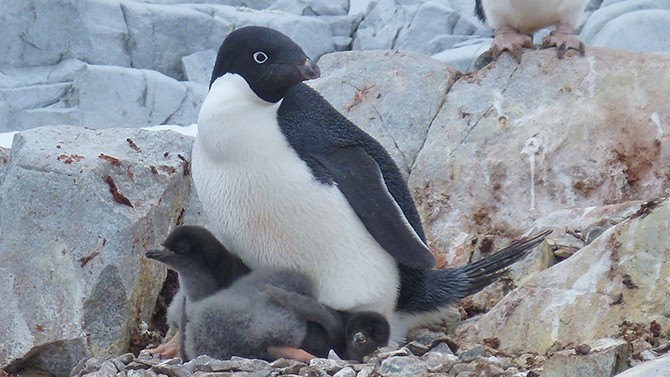By the end of this century, penguins will become a rare sight as populations continue to decline due to rising sea temperatures in Antarctica, according to a new study.
Scientists from the University of Delaware suggest that about 60 percent of the Adélie penguin colonies will continue to decline by 2099, where there are already several regions on the continent that can develop into refuges for these birds in the next 70 years.
This particular penguin species can breed in any region of the continent however some regions are already seeing population declines since these areas, like the West Antarctic Peninsula suffer from dramatic temperature changes, which is also one of the fastest warming places on the planet.
Geologic records also revealed that glaciers and ice sheets are now covering breeding habitats with ice as colonies disappear. During warmer periods, glaciers melt where the penguins are able to return.
However, penguins can only withstand so much of these conditions, that can mean consequences for their habitats. Researchers suggest that there will be a shift of habitat for penguins as they migrate to other parts of the continent due to fluctuating temperatures and climate.
According to Megan Cimino from the Scripps Institute of Oceanography, this new study utilized habitat sustainability models that were based from massive datasets. Our results are based from ground counts where people physically count the penguins and investigate their habitats, combined with high resolution satellite imagery, that would yield global estimates of the Adélie penguin breeding locations.
Cimino adds that these estimates also reveal where they are currently dwelling and where they are absent, throughout the Southern Ocean in the Antarctic region. Apart from these, they have also obtained population size estimates and variation of population numbers throughout past decades.
By combining penguin counts and satellite data including climate projections from sea surface temperatures and sea ice, researchers were able to predict the habitat sustainability for the penguins.
Results reveal that around 30 percent of the penguin colonies will decline by 2060 and 60 percent will decline by the end of 2099.
Cimino says that this study is crucial so that we can focus on regions where the species is vulnerable to climate change, where these results can be used for management since these can provide implications for other species that also live in the region including ecosystem activities.
This new study is published in the journal Scientific Reports.



























